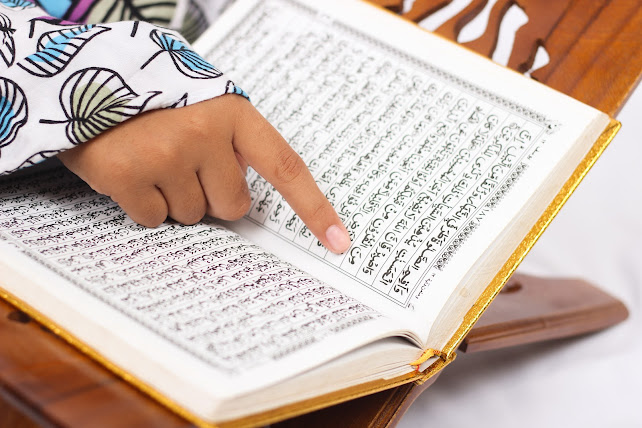 |
| Importance of Tajweed |
Recitation of the Quran holds immense significance in the lives of Muslims around the world. It is a spiritual practice that not only connects them to the divine message but also serves as a means of seeking solace and guidance. One of the fundamental aspects of Quranic recitation is Tajweed, the set of rules that governs the correct pronunciation and intonation of the Arabic words. Tajweed ensures the accurate and melodious recitation of the Quran, enhancing its beauty and preserving its intended meanings. This article delves into the importance of Tajweed, shedding light on its impact on both the reciter and the listener, as well as its role in preserving the sanctity of the divine scripture.
Understanding Tajweed
Tajweed, derived from the Arabic word "jawaada" (to make better), refers to the rules and guidelines for reciting the Quran correctly. It encompasses the correct pronunciation of each letter, the rules of elongation, and the appropriate application of various vocalization marks. Tajweed aims to ensure that every letter, word, and verse of the Quran is recited with precision and clarity, adhering to the way it was revealed to the Prophet Muhammad (peace be upon him).
Enhancing Recitation Accuracy
The primary objective of Tajweed is to recite the Quran accurately. By adhering to the rules of Tajweed, the reciter can avoid mispronunciations and errors, which can unintentionally alter the meanings of the words and distort the message of the Quran. Tajweed provides a systematic framework for proper articulation of Arabic sounds, enabling the reciter to avoid confusion between similar letters and ensuring the correct placement of pronunciation points. This precision in recitation is crucial for the preservation and authenticity of the Quran.
Moreover, Tajweed helps in differentiating between various types of letters, such as heavy (thick) and light (thin), aspirated and non-aspirated, and stops and continuations. By mastering these distinctions, the reciter can maintain the eloquence and musicality of the Quranic verses, thereby creating a harmonious and captivating recitation experience.
Beautifying Quranic Recitation
Tajweed not only enhances the accuracy of Quranic recitation but also adds a remarkable aesthetic dimension to it. The rules of Tajweed emphasize the proper pronunciation of letters, the elongation of specific sounds, and the application of appropriate vocal techniques. This attention to detail elevates the recitation from mere reading to a melodic and soul-stirring experience.
By observing Tajweed rules, the reciter can create a rhythmic flow in their recitation, accentuating the natural beauty of the Arabic language. The elongation of specific letters and the correct use of pauses and breaths enhance the emotional impact of the recitation, allowing the words of the Quran to resonate deeply within the hearts of the listeners. Tajweed ensures that the Quran is recited in the most beautiful and captivating manner, drawing the listeners closer to its profound message.Facilitating
Comprehension
Tajweed plays a vital role in facilitating the understanding of the Quran. The correct pronunciation and enunciation of words aid in grasping the meanings and intentions behind the divine verses. When the words are articulated clearly and accurately, it becomes easier for both the reciter and the listener to comprehend the message of the Quran. Tajweed helps in avoiding misinterpretations and misunderstandings that may arise due to incorrect recitation.
Additionally, Tajweed guides the reciter on the appropriate tone and intonation to be used in different contexts, conveying the intended emotions and emphasis. This aids in conveying the depth and subtleties of the Quranic verses, enriching the listener's understanding and spiritual connection with the text.
Spiritual and Personal Development
Tajweed is not solely focused on the external aspects of recitation; it also holds immense spiritual value. The process of learning and implementing Tajweed rules demands discipline, patience, and humility. It requires dedication and practice to master the intricacies of correct pronunciation and recitation.
By engaging in Tajweed, the reciter develops a profound reverence for the Quran and the words of Allah. It becomes a spiritual journey of seeking perfection and drawing closer to the divine. The meticulousness required in Tajweed fosters a sense of mindfulness and focus during recitation, enabling individuals to establish a deeper connection with the divine message.
Conclusion
Tajweed is an integral aspect of Quranic recitation, serving to enhance the accuracy, beauty, and comprehension of the divine scripture. Through the application of Tajweed rules, Muslims can ensure that the Quran is recited as it was revealed, preserving its authenticity and sanctity. Tajweed not only benefits the reciter by nurturing their spiritual growth and discipline but also enriches the experience of the listeners, captivating their hearts and minds. By recognizing the importance of Tajweed and striving to implement its principles, individuals can embark on a journey of profound connection with the Quran, deepening their understanding of the divine message.



Comments
Post a Comment